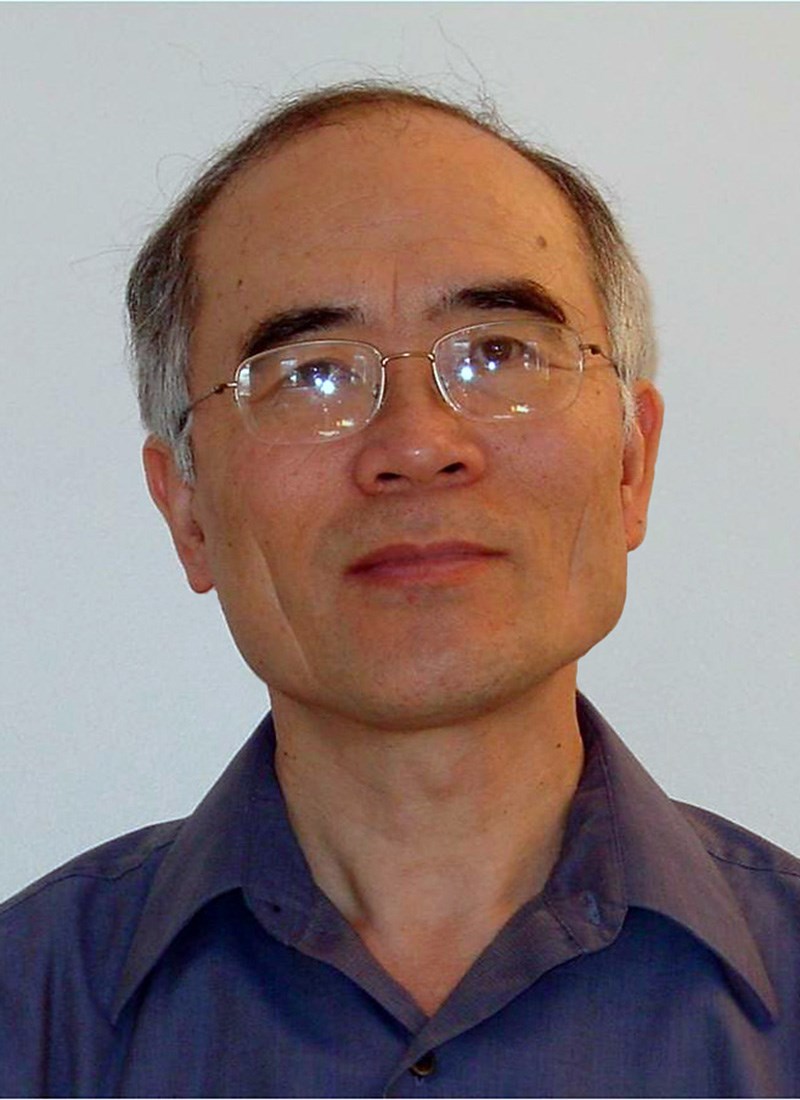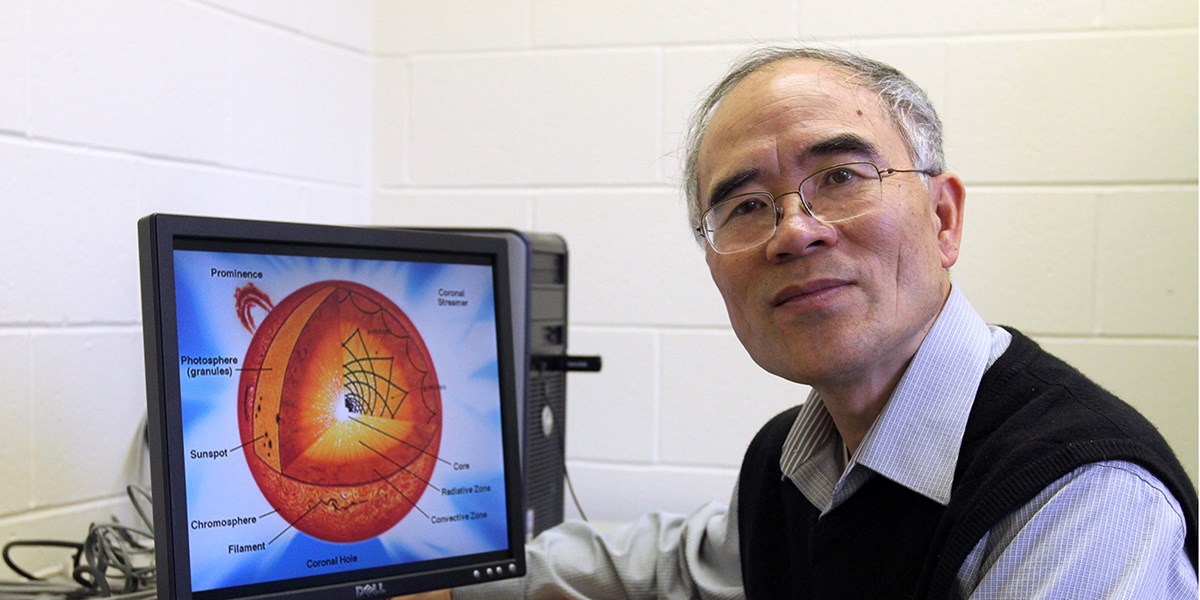We all rely on local weather forecasts to plan our travels and outdoor activities, or even to decide whether to water the lawn.
But researchers like Prof. Paul Song in the Department of Physics & Applied Physics are also interested in “space weather,” the constantly changing environmental conditions in interplanetary space, especially between the sun’s atmosphere and Earth’s outer atmosphere. While meteorologists deal with clouds, air pressure, wind, precipitation and the jet stream, space-weather scientists concentrate on changes in the ambient plasma (ionized gas), solar wind, magnetic fields, radiation and other matter in space.
“Predicting space weather is the next frontier in weather forecasting,” says Song.
An expert in geophysics and solar plasma physics, Song directs UMass Lowell’s Space Science Laboratory.
“Inclement space weather triggered by massive storms on the sun has increasingly become a threat to modern space technologies and services, such as GPS navigation and shortwave radio and satellite communications,” he says.
Song joined the UMass Lowell faculty in 2000 and currently teaches seniors and graduate students.
“The quality of our students is impressive,” he notes. “And the research programs being conducted at the Space Science Lab are very unique and highly regarded all over the world.”
Song obtained his doctorate in 1991 from UCLA and his bachelor’s and master’s degrees in 1982 and 1986 from China’s Shandong University in Jinan and the Institute of Space Physics in Beijing, respectively.
Song became interested in astronomy at an early age, but growing up in Beijing in the 1960s and ’70s during the height of Communist Party leader Mao Zedong’s Cultural Revolution was extremely difficult for the budding scientist.
“The schools were closed and we all had to work in factories,” he says.
After the revolution ended following Mao’s death, the schools reopened and began accepting qualified students.
“We had to take an exam to be eligible to go to college. Because of my high score, the government ‘assigned’ me to go to Shandong University, where I studied physics, optics and infrared remote sensing,” Song says. “It was very hard for me since I finished only elementary school. I skipped middle school and high school and had to go directly to college. But I did it. Everything I know I learned by myself.”
He adds: “I’m glad I’m able to contribute to our fundamental knowledge about the sun and space weather and how they can impact the lives of people here on Earth.”


